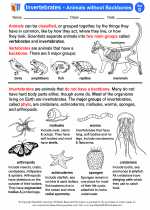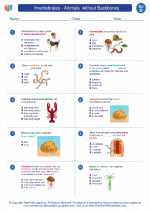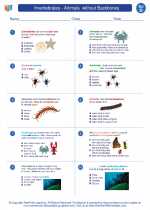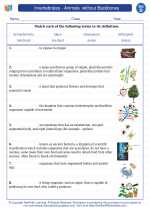What is Biopower?
Biopower is a form of renewable energy that involves using organic materials, such as plants and animal waste, to generate power.
Types of Biopower
There are two main types of biopower:
- Biofuels: These are liquid or gaseous fuels derived from organic matter. Examples include ethanol, biodiesel, and biogas.
- Biomass Power: This involves burning organic materials, such as wood chips, agricultural residues, and waste, to produce heat and electricity.
Benefits of Biopower
There are several benefits to using biopower as an energy source:
- Renewable: Organic materials can be replenished, making biopower a sustainable energy option.
- Reduces greenhouse gas emissions: Burning organic materials releases carbon dioxide, but the plants used in biopower production absorb carbon dioxide during their growth, making the process carbon neutral.
- Supports agricultural and rural development: Biopower production can create new markets for agricultural products and provide economic opportunities in rural areas.
Challenges of Biopower
While biopower offers many benefits, there are also challenges associated with its production and use:
- Land use and competition with food production: Growing biofuel crops can compete with food crops for land and resources.
- Resource availability: The availability of organic materials for biopower production can vary depending on factors such as weather, crop yields, and waste generation.
- Technological and economic barriers: Developing and implementing biopower technologies can require significant investment and research.
Conclusion
Biopower is an important and promising renewable energy source that can help reduce our dependence on fossil fuels and mitigate the impacts of climate change. By understanding the types, benefits, and challenges of biopower, we can make informed decisions about its role in our energy future.
.◂Science Worksheets and Study Guides Fourth Grade. Invertebrates - Animals without Backbones
Study Guide Invertebrates - Animals without Backbones
Invertebrates - Animals without Backbones  Activity Lesson
Activity Lesson Invertebrates - Animals without Backbones
Invertebrates - Animals without Backbones  Worksheet/Answer key
Worksheet/Answer key Invertebrates - Animals without Backbones
Invertebrates - Animals without Backbones  Worksheet/Answer key
Worksheet/Answer key Invertebrates - Animals without Backbones
Invertebrates - Animals without Backbones  Worksheet/Answer key
Worksheet/Answer key Invertebrates - Animals without Backbones
Invertebrates - Animals without Backbones  Worksheet/Answer key
Worksheet/Answer key Invertebrates
Invertebrates  Vocabulary/Answer key
Vocabulary/Answer key Invertebrates - Animals without Backbones
Invertebrates - Animals without Backbones  Vocabulary/Answer key
Vocabulary/Answer key Invertebrates - Animals without Backbones
Invertebrates - Animals without Backbones  Vocabulary/Answer key
Vocabulary/Answer key Invertebrates - Animals without Backbones
Invertebrates - Animals without Backbones  Vocabulary/Answer key
Vocabulary/Answer key Invertebrates - Animals without Backbones
Invertebrates - Animals without Backbones  Vocabulary/Answer key
Vocabulary/Answer key Invertebrates - Animals without Backbones
Invertebrates - Animals without Backbones 

 Activity Lesson
Activity Lesson
 Worksheet/Answer key
Worksheet/Answer key
 Worksheet/Answer key
Worksheet/Answer key
 Worksheet/Answer key
Worksheet/Answer key
 Worksheet/Answer key
Worksheet/Answer key
 Vocabulary/Answer key
Vocabulary/Answer key
 Vocabulary/Answer key
Vocabulary/Answer key
 Vocabulary/Answer key
Vocabulary/Answer key
 Vocabulary/Answer key
Vocabulary/Answer key
 Vocabulary/Answer key
Vocabulary/Answer key

The resources above cover the following skills:
Life Science: The students will use scientific skills and processes to explain the dynamic nature of living things, their interactions, and the results from the interactions that occur over time.
Diversity of Life: Explain how animals and plants can be grouped according to observable features.
Classify a variety of animals and plants according to their observable features and provide reasons for placing them into different groups.